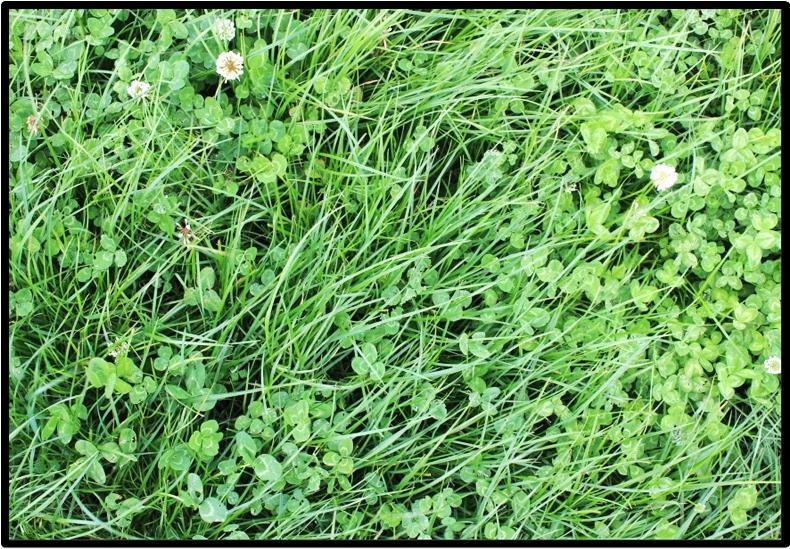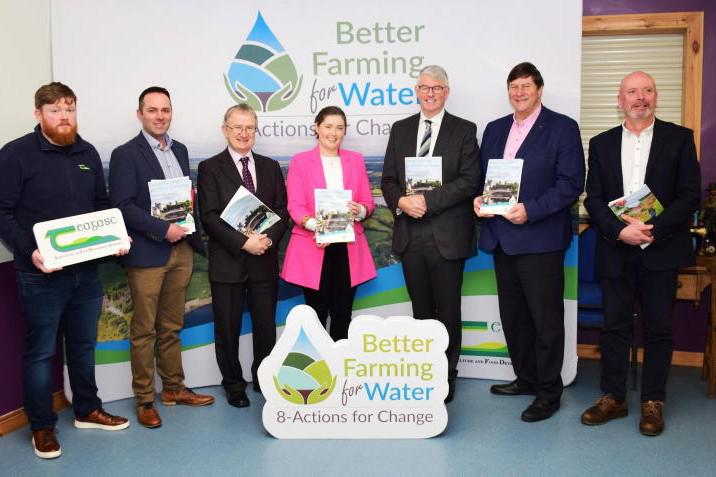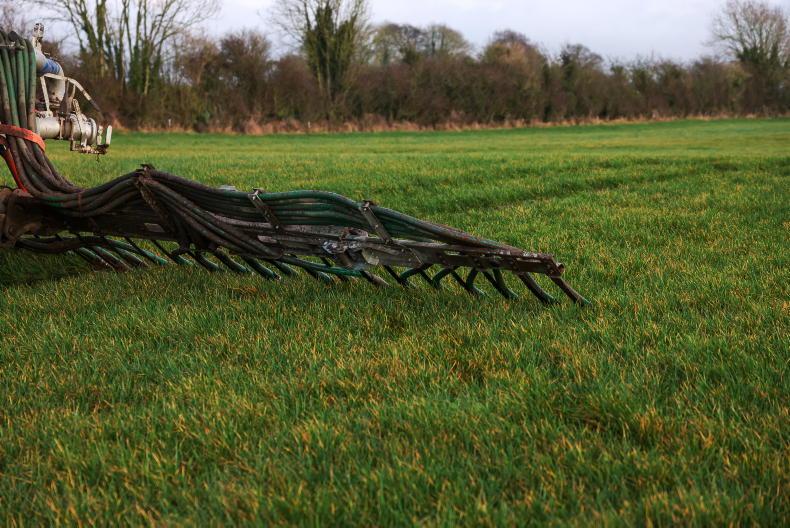A five-year cross-border project that aims to improve raw water quality in the Derg and Erne catchment areas has shown that every £1 invested in pollution prevention measures can potentially yield £3.36 worth of benefits.
The €4.9m Source to Tap project has involved NI Water, Irish Water, alongside various research and advisory partners, with funding coming from the EU, matched by government either side of the border.
Speaking at an event on Tuesday to mark the closing of the project, Paul Harper from NI Water suggested that future investment might be better made in preventing pollution in water catchments rather than more concrete structures at water treatment plants.
“The £3.36 benefit – I suspect it is a huge underestimate,” he said.
A key part of the project has been a land incentive scheme run in the Derg catchment area, where 100% grants of up to £20,000 per farm were made available between July 2018 and July 2020.
In total, 118 farmers undertook a range of actions under the scheme, availing of €1.16m of funding.
To help improve the turbidity (the cloudiness) of water, various measures were covered under the initiative including fencing to keep livestock out of watercourses (with alternative drinking points provided).
However, an important focus for the project has been to encourage farmers to weed wipe rushes using glyphosate rather than spray using MCPA.
As well as pesticide storage cabinets, participating farmers had the cost of using a contractor to weed wipe, covered under the project.
Soluble
The issue with MCPA is that it is highly soluble, so it is susceptible to fast runoff after heavy rain.
“Over 70% of losses occur during storm events. And through the winter it never goes away – it is always in the system,” explained Dr Rachel Cassidy from the Agri-Food and Biosciences Institute (AFBI).
The EU legal limit for MCPA is 0.10 micrograms/litre, which is the equivalent of one drop of pesticide in an Olympic sized swimming pool.
Removing MCPA at water treatment works adds significantly to costs.
Analysis of water quality results from the Derg catchment in the 18-month period pre and post April 2020 points to MCPA concentrations in water being down by up to 24%, confirmed Dr Cassidy.
She suggested that changes to land eligibility rules in new support schemes likely from 2024, may also reduce the incentive for farmers to use MCPA to control rushes. Under those changes all land will be eligible for payment, outside of hard features.
Peat
A further element of the Source to Tap project has been to investigate techniques for restoring forest back to peat bogs. When a peat bog is damaged or drained, more carbon gets into the water, colouring it, and adding to costs at water treatment plants.
In October 2021 work began on restoring part of a 30ha peat bog at Tullychurry in Co Fermanagh that had previously been planted in the 1960s. Much of the site had been harvested in the winter of 2019-2020.
Restoration involved trapping water and blocking drains. Initial results show that there has already been an improvement in biodiversity at the site.
Read more
Sheep Management: weed control, safeguarding chemical use and tick control
Farmers urged to limit MCPA use
A five-year cross-border project that aims to improve raw water quality in the Derg and Erne catchment areas has shown that every £1 invested in pollution prevention measures can potentially yield £3.36 worth of benefits.
The €4.9m Source to Tap project has involved NI Water, Irish Water, alongside various research and advisory partners, with funding coming from the EU, matched by government either side of the border.
Speaking at an event on Tuesday to mark the closing of the project, Paul Harper from NI Water suggested that future investment might be better made in preventing pollution in water catchments rather than more concrete structures at water treatment plants.
“The £3.36 benefit – I suspect it is a huge underestimate,” he said.
A key part of the project has been a land incentive scheme run in the Derg catchment area, where 100% grants of up to £20,000 per farm were made available between July 2018 and July 2020.
In total, 118 farmers undertook a range of actions under the scheme, availing of €1.16m of funding.
To help improve the turbidity (the cloudiness) of water, various measures were covered under the initiative including fencing to keep livestock out of watercourses (with alternative drinking points provided).
However, an important focus for the project has been to encourage farmers to weed wipe rushes using glyphosate rather than spray using MCPA.
As well as pesticide storage cabinets, participating farmers had the cost of using a contractor to weed wipe, covered under the project.
Soluble
The issue with MCPA is that it is highly soluble, so it is susceptible to fast runoff after heavy rain.
“Over 70% of losses occur during storm events. And through the winter it never goes away – it is always in the system,” explained Dr Rachel Cassidy from the Agri-Food and Biosciences Institute (AFBI).
The EU legal limit for MCPA is 0.10 micrograms/litre, which is the equivalent of one drop of pesticide in an Olympic sized swimming pool.
Removing MCPA at water treatment works adds significantly to costs.
Analysis of water quality results from the Derg catchment in the 18-month period pre and post April 2020 points to MCPA concentrations in water being down by up to 24%, confirmed Dr Cassidy.
She suggested that changes to land eligibility rules in new support schemes likely from 2024, may also reduce the incentive for farmers to use MCPA to control rushes. Under those changes all land will be eligible for payment, outside of hard features.
Peat
A further element of the Source to Tap project has been to investigate techniques for restoring forest back to peat bogs. When a peat bog is damaged or drained, more carbon gets into the water, colouring it, and adding to costs at water treatment plants.
In October 2021 work began on restoring part of a 30ha peat bog at Tullychurry in Co Fermanagh that had previously been planted in the 1960s. Much of the site had been harvested in the winter of 2019-2020.
Restoration involved trapping water and blocking drains. Initial results show that there has already been an improvement in biodiversity at the site.
Read more
Sheep Management: weed control, safeguarding chemical use and tick control
Farmers urged to limit MCPA use










SHARING OPTIONS